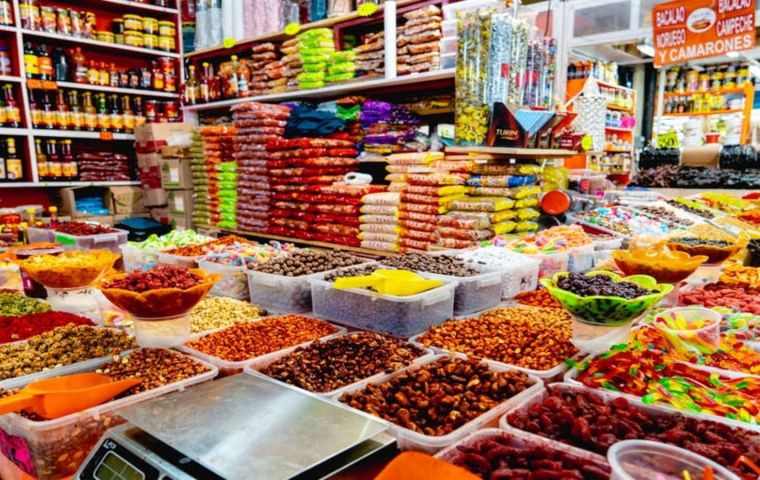MercoPress. South Atlantic News Agency
World food prices rose 1,2% in September and 32,8% year to year, FAO
 FAO Dairy Price Index increased 1.5% from August, as solid global import demand in Europe and Oceania drove up quotations for all dairy products
FAO Dairy Price Index increased 1.5% from August, as solid global import demand in Europe and Oceania drove up quotations for all dairy products World food commodity prices rose in September, led by tightening supply conditions and robust demand for staples such as wheat and palm oil, the Food and Agriculture Organization of the United Nations (FAO) reported. FAO's Food Price Index averaged 130.0 points in September, up 1.2% from August and 32.8% higher than in September 2020. The index tracks monthly changes in the international prices of commonly traded food commodities.
The FAO Cereal Price Index in September increased by 2.0 percent from the previous month, with world wheat prices up almost 4% - and as much as 41% higher than a year earlier – due to tightening export availabilities amid strong demand. World rice prices also rose in September, while those of maize increased by a moderate 0.3 percent – averaging 38% higher year-on-year - as improved global crop prospects and the start of harvests in the United States of America and Ukraine largely countered the impact of hurricane-related port disruptions in the U.S.
“Among major cereals, wheat will be the focus in the coming weeks as demand need to be tested against fast rising prices,” says FAO Senior Economist Abdolreza Abbassian.
The FAO Vegetable Oil Price Index was up 1.7 percent on the month – and about 60% from September 2020 – as international palm oil prices reached 10-year highs due to robust global import demand and concerns over migrant labor shortages impacting production in Malaysia. World rapeseed oil prices also appreciated markedly, while soy and sunflower oil quotations declined.
The FAO Dairy Price Index increased by 1.5 percent from August, as solid global import demand and seasonal factors in Europe and Oceania drove up international quotations for all dairy products, especially butter.
The FAO Sugar Price Index was 0.5 percent higher from the previous month – and 53.5% from a year earlier – underpinned by adverse weather conditions and higher ethanol prices in Brazil, the world’s largest sugar exporter. Slowing global import demand and good production prospects in India and Thailand curbed the upward pressure.
The FAO Meat Price Index was virtually unchanged in September from the previous month and up 26.3% on an annualized basis. Ovine and bovine meat quotations rose due to tight supply conditions, while those for poultry and pig meat declined amid ample global supply volumes of the former and lower demand for the latter in China and Europe.




Top Comments
Disclaimer & comment rulesCommenting for this story is now closed.
If you have a Facebook account, become a fan and comment on our Facebook Page!